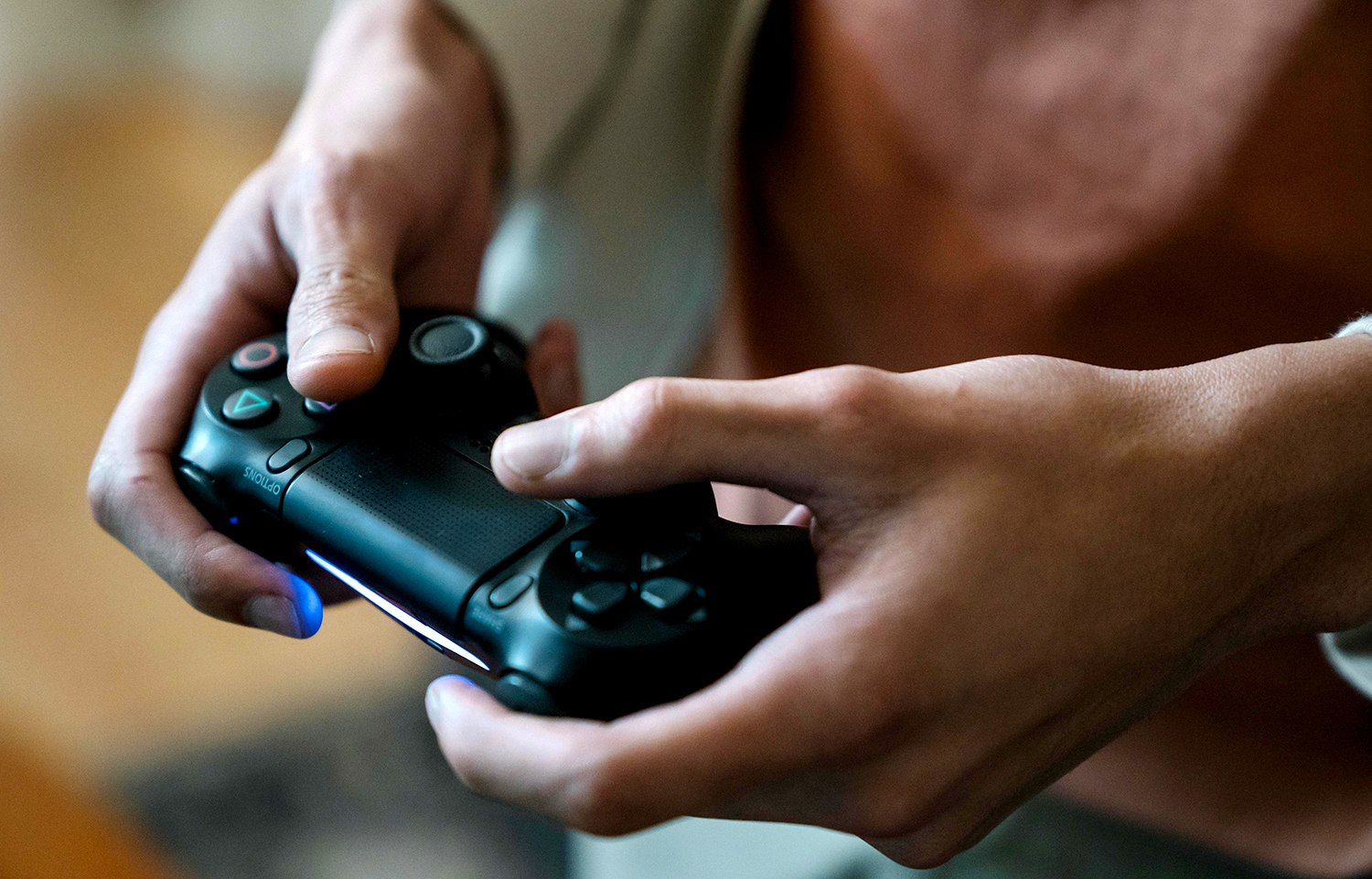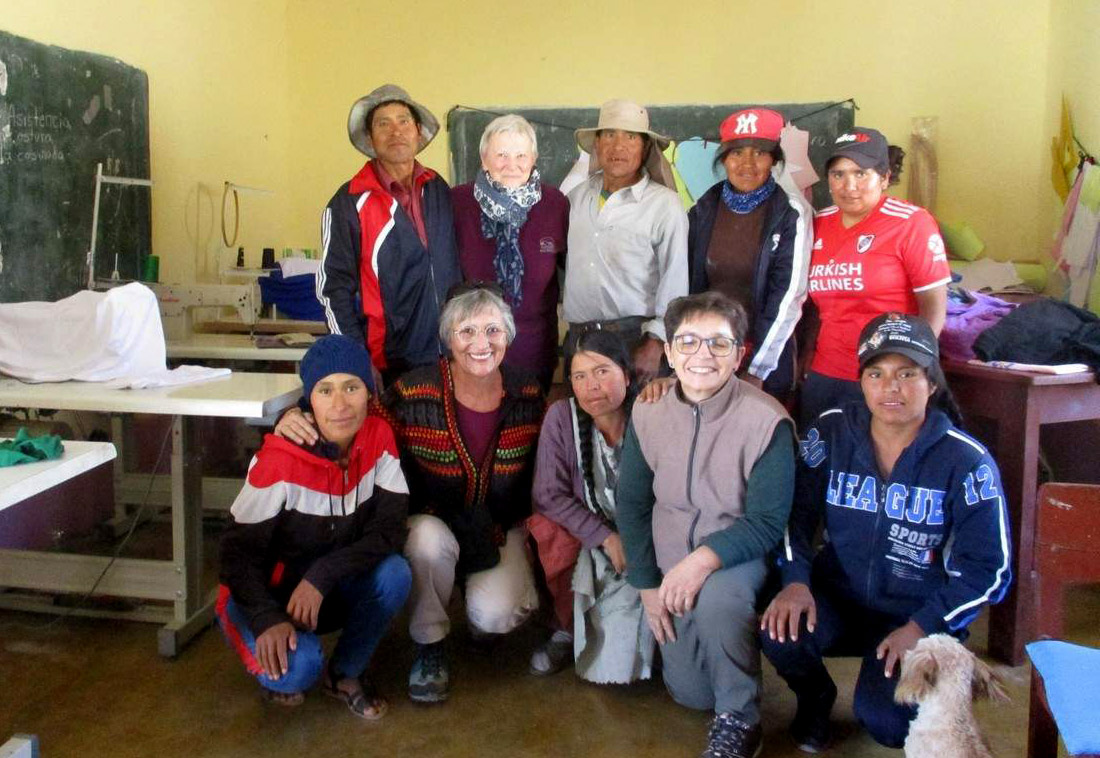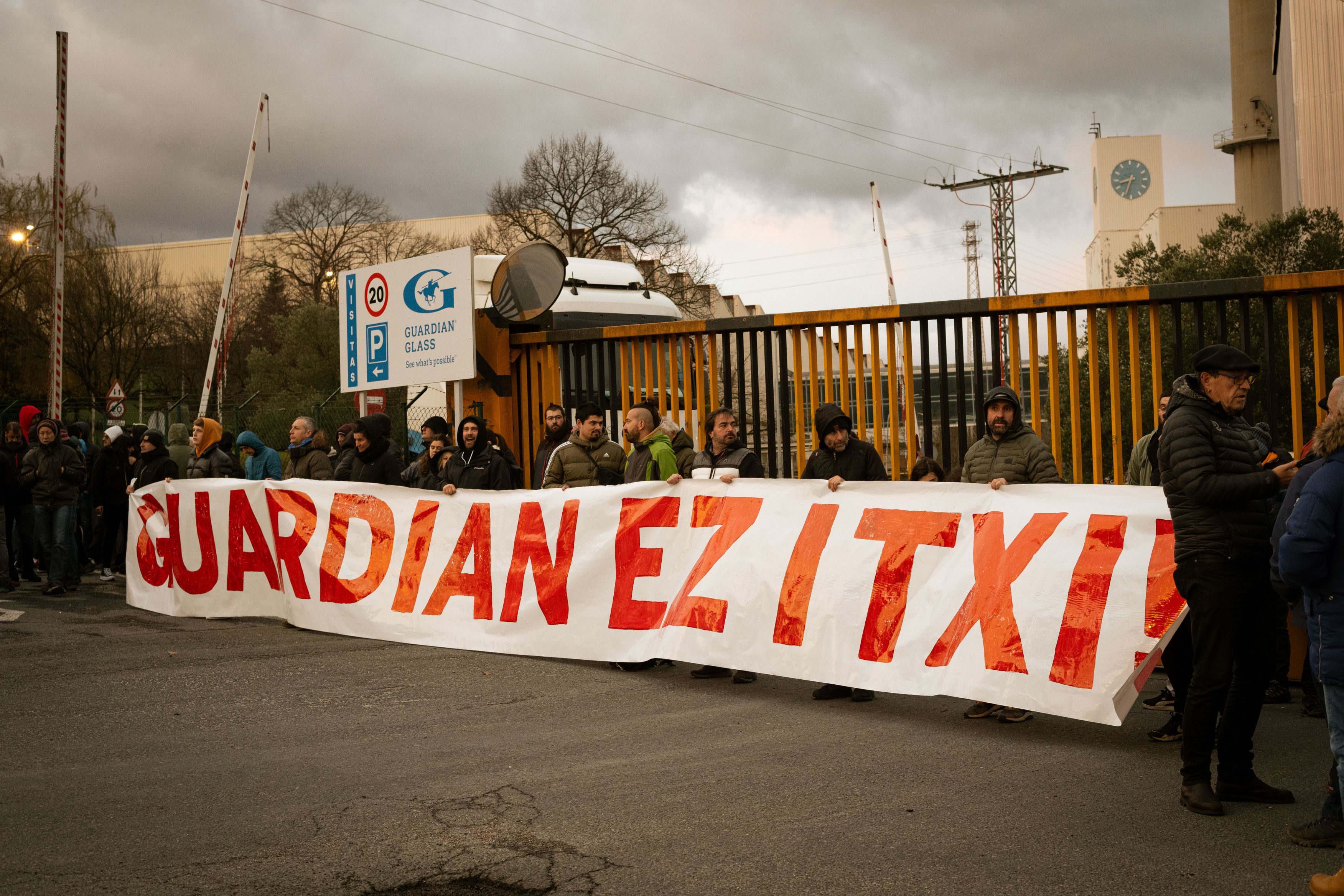Slave in Iraq
- After paying a fortune for their promise to get a job in Dubai, United Arab Emirates, they end up sweeping the streets of Iraqi Kurdistan. This is the fate of thousands of Bangladeshis who are victims of human trafficking mafias.
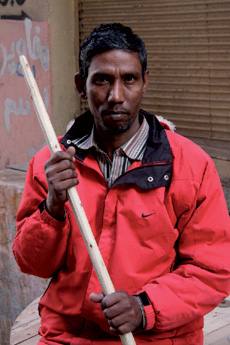
“I paid $3,000 to a labor agency in Dhaka, the capital of Bangladesh, to get a three-year contract in Dubai. I was told that I would work at Pepsi for $500 a month; these were the conditions,” recalls Abhike in the shadow of the Friday mosque minaret. “But as soon as we arrived at the airport in Dubai, we were told there was no work there; we had to go to Erbil (the capital of Iraqi Kurdistan),” explains the 22-year-old. Since he got here, he's been working for $150 a month.
Just after 12:30 p.m., the south street of the bazaar is full of men dressed in orange. Taxis to both Erbil and Suleimania depart from it, but the workers of the Artosh Company go to lunch, to their camp on the outskirts of Dohuk.
We are in the north of Iraq, just an hour from the Turkish border, but in the camp the menu is always Bengali, one hundred percent: lamb or chicken cooked with tongs, depending on the day, always accompanied by a lot of rice. “The food here is very good,” says Charbak, while he eats small pieces of chicken with his fingers. “The job is not what I expected, but at least I don’t go hungry here,” this 24-year-old tells us. It is said that three meals a day in Bogrand (northern Bangladesh), his home town, is only the luxury of the few privileged.
Sitting next to him, the 38-year-old Kashi is less optimistic. “My parents had to sell their house so that they could pay the agency $3,000. For $500 a month we would have recovered the house in a short period of time, but now it is impossible,” he complains. Despite the difficulties, he sends home $100 a month. “I spend the remaining 50 on the phone to talk to my wife and two children,” he adds, amid a sip of tea.
Mainak also just spoke to his wife on the phone. He’s been in Kurdistan for a month now, but he still hasn’t dared to tell his family the truth: Not that he's an office manager in Dubai, but that he's a street cleaner in Iraq. “How can I tell my wife? We're newlyweds, we had plans. We had to spend three years away from each other, but back home we could enjoy a decent life with the money we had earned,” Maina regrets. His wife’s family lent him the $3,000 to come here, “all their savings.” After
lunch, the orange men climb into the trucks to return to work. Rahul is one of the cleaners in the bazaar. Even without working clothes, we could easily separate ourselves in the midst of the human flood that invades the mall. His dark skin and the face of the subcontinent say he’s come from far away. In any case, during his two years in Dohuk he has barely had contact with the local Kurds. No wonder, because Rahul has never walked away from the streets of Dohuk that he has to sweep. “Our passports are kept by the company until the end of our three-year contract. In this way, we cannot leave Dohuk; we cannot cross the checkpoint without documentation!” complains Rahul, among the screams of the iron blinds that are closing.
“Even if we had a passport we couldn’t get out of this city,” adds Bardhan, Rahul’s partner in the bazaar. The young man says that they don’t have a work visa, they have a tourist visa stamped on their passport. If they fall into the hands of the police, they would be arrested on charges of being “illegal immigrants.”
The boss says
FarisArtosh has her office in the building next to the dining room. Sitting behind the table, he answers our questions with the Kurdish flag next to him, as Artosh considers himself a “Kurdish patriot.” “I did all this for Kurdistan. I started this company in 2007 because I found the garbage on our streets painful. Today everyone congratulates me!” says Artosh comfortably in the reclining leather chair. The Zeri Oil logo is displayed on the ashtray on the table. The gas station network of the same name appears to be another of Artosh’s successful companies. “The proper management of our energy wealth on the one hand, and the promotion of tourism on the other, are my priorities,” says the entrepreneur. In fact, Faris Artosh also owns a network of luxury hotels.
Artosh accuses the Bangladeshi structure of any irregularity in the working conditions of the cleaners. “Transparency reigns in us, in Kurdistan,” he says, while he takes a photocopy of a contract to give it to us later. “I offer free maintenance to my employees. That’s not enough and, every six months, an inspector comes from Bangladesh to inspect the conditions of my employees. It always confirms that they are better than at home”, adds Artosh, emphasizing that he has just installed an adapted wind in each room.
He admits, however, that he has the staff's passports locked away. “If it weren’t for that, many would try to escape to Turkey and then to Europe.” He has assured us that everyone has arrived with a work visa. However, it cannot be confirmed, because the boss is not willing to take a single document out of the safe deposit box.
The small universes
Every night, eleven rubber boots line up in the hallway between the bedrooms. It is time to relax for the 150 employees of the Artosh Company. There are six people in each room, scattered in three bunk beds. The small picture that stands in the center is a space to be shared; basically, a place to sit to watch a cricket match. Bangladesh became independent from Pakistan in 1971, and so every time the two countries clash with each other, a great deal of laughter is born in the barracks. But it’s an event that rarely happens. Most of the time, each employee is in his or her own bed. Often covered by a sheet or a towel, the areas between the bunk beds are as picturesque as the small universes: family portraits, all dressed in vivid colors, surrounded by lush vegetation; a photo of a family member or friend who has made a pilgrimage to Haji Mecca; a beautiful wooden house in the Chittagong Mountains; a simple phrase written on the wall: “Honesty is the best policy.” At
56 years old, Naresh is the oldest worker. Sitting on the edge of a decent bed, he confesses that he just signed for another three years today. “It is clear that this is not the profession that I was promised. But it’s better here than collecting white iron in the streets of Dhaka, making a dollar a day,” he says before going to bed.
Bangladesheko langileak turista bisa batekin iristen dira Hego Kurdistanera. Hala, ezin dute, besteak beste, herrialdean libre ibili, apartamentu bat errentan hartu edota euren lan-eskubideak defendatu. Hori gutxi ez eta oinarrizko komunikazioa ere arazo bilakatzen da, etorkinek apenas baitakite kurdueraz edota arabieraz.
Langile bikain eta ondraduen ospea dute bangladeshtarrek eta oso gutxi eskatzen ei diete euren kontratatzaileei. Astean sei egunez eta egunean 16 orduz lan egin arren, 200 dolar baino gutxiagoko soldata jasotzen dute. Bangladeshtar gehienak kale garbitzaile lanpostuetan aritzen dira, bai eta hoteletako zerbitzari edota etxeko laguntzaile.
Okzitaniako Tolosako elkartea da aipatu kolektiboa eta Frantziako Gobernuak dekretuz desegin zuen 2022an. Orain Estatu Kontseilua gobernuaren erabakia egokia dela berretsi du.
Sare Herritarrak antolatuta, pasa den urtarrilaren 11n Bilboko kaleak bete zituen manifestazio jendetsuaren ondoren, berriz sortu da eztabaida, euskal presoei salbuespen legeriarik aplikatzen ote zaion. Gure iritzia azaltzen saiatuko gara.
Espetxe politikan aldaketa nabarmena... [+]
Duela gutxi think tank izateko jaioa omen den Zedarriak bere 6. txostena aurkeztu zuen. Beren web orrialdean azaltzen dutenaren arabera, zedarriak ebidentea ez den bidea topatzeko erreferentziak dira. Hots, hiru probintzietako jendarteari bidea markatzeko ekimena. Agerraldi... [+]
Eskoziako Lur Garaietara otsoak itzularazteak basoak bere onera ekartzen lagunduko lukeela adierazi dute Leeds unibertsitateko ikertzaileek.. Horrek, era berean, klima-larrialdiari aurre egiteko balioko lukeela baieztatu dute, basoek atmosferako karbono-dioxidoa xurgatuko... [+]
Karen Daniela Ágredok dioenez, atxilotu zutenean berak ez zuen ertzainik zauritu, haiek lurrera bota zuten eta konortea galdu zuen. Ondoren, Ertzaintzaren komisariaren zoruan iratzartu zen eta handik ospitalera eraman zuten.
Hiuzz + Bloñ + Adur
Noiz: otsailaren 15ean.
Non: Iruñeko Aitzina tabernan (Egun Motelak kolektiboa).
--------------------------------------------
Larunbat goiza Iruñean. Neguko eguzkitan lanera doazen gizon –eta ez gizon– bakarti batzuk... [+]
Zubiak eraiki Xiberoa eta Boliviaren artean. Badu jadanik 16 urte Boliviaren aldeko elkartea sortu zela Xiberoan. Azken urteetan, La Paz hiriko El Alto auzoko eskola bat, emazteen etxe baten sortzea, dendarien dinamikak edota tokiko irrati bat sustengatu dituzte.
11 doctors in health care earn 230,000 euros each year, one of the practices 18,000 euros
This Thursday, EH Bila asked the Government of Navarre to investigate and correct this situation in the plenary session of the Parliament of Navarre. The UPN and the PP have joined the... [+]









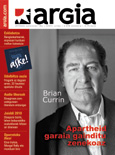




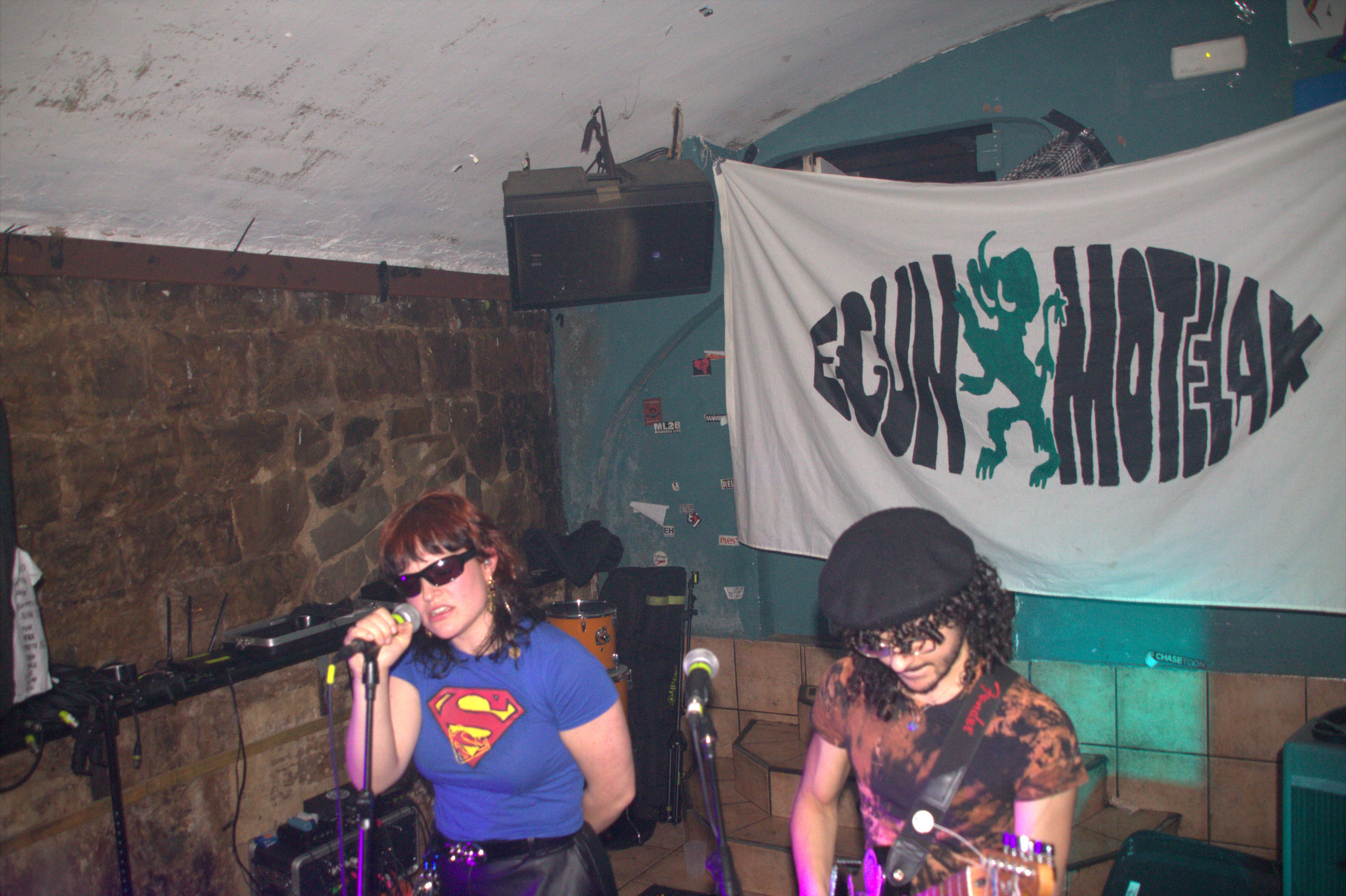
.jpg)
